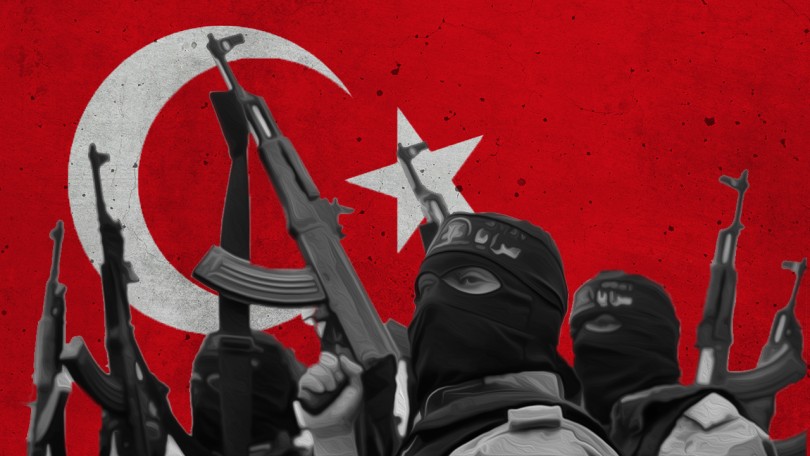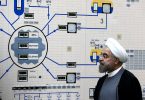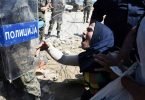The Westphalian system is in shambles in the Middle East following the rise of the ISIS – an organization of psychopath terrorists aimed to develop a predominantly Sunni Islamic State that straddles through Iraq and Syria. The military success of the ISIS last year after capturing the Iraqi city Mosul took the whole world in shock and awe as it challenged the traditional boundaries of the states. The group has since then unleashed a mega-theatre of torture and bloodbath in the areas under control and has made significant military gains in Northern Iraq and Syria. To counter the rising threat of the Islamic State, the Kurds of Iraq (KDP) and Syria (PYD) pledged support to the coalition of around 60 nations militarily since the ISIS advances threatened the Kurdish stronghold Erbil in Iraq and have since fought valiantly against the terrorist group. With each new military success of the Iraqi and Syrian Kurdish forces against the advances of the ISIS, tensions rise in Ankara as it means that while IS may be pushed back, the impulsive rise of Syrian and Iraqi Kurds could mean another challenge to the geopolitical map of the Middle East with a possible domino effect in Turkey.
With each new military success of the Iraqi and Syrian Kurdish forces against the advances of the ISIS, tensions rise in Ankara as it means that while IS may be pushed back, the impulsive rise of Syrian and Iraqi Kurds could mean another challenge to the geopolitical map of the Middle East with a possible domino effect in Turkey.
Kurds are Middle East’s fourth largest ethnic group inhabiting the mountainous areas of Turkey, Northern Iraq, parts of Syria and Iran. Following the disintegration of the Ottoman Empire, Kurdish nationalism took momentum when Turkey, Syria and Iraq agreed not to recognize an independent Kurdish state. Kurds have time and again launched an armed struggle against the respective central governments to seek greater autonomy or complete independence in the form of Kurdistan which spans through all the four countries. The Kurds of Iraq and Turkey have particularly faced persecution. While Saddam Hussein made deliberate attempts of outright genocide against the Iraqi Kurdish population, the Turkish government denied Kurds living in Turkey any separate status and labeled them as the ‘Mountain Turks’.
When the self-styled Islamic State (ISIS) challenged the sovereignty of Iraq in 2014 and exploited the ongoing civil war in Syria by capturing huge swaths of land in both the countries, the Iraqi military forces collapsed but the Syrian and the Iraqi Kurds managed to seize important territories including the oil-rich Kirkuk in Iraq and Kobani alongside Turkish-Syrian border which subsequently raised their global profile. As the IS threat has deepened, the Kurdish forces have been instrumental in confronting the challenge primarily in the name of defending their own communities and have thus become Washington’s new preferred ally in the region. US-led coalition has supported the ground operations of the Kurdish forces with air strikes along with channeling huge sums of arms and money to ultimately destroy and degrade the IS. Though America is now working closely with the Iraqi and the Syrian Kurds, it considers the Kurdish guerilla fighters in Turkey (commonly known as PKK) as terrorists. However, the irony is that Washington’s support assists equally the Syrian, Iraqi and the Turkish Kurds. This is so because PYD is closely associated with the PKK. Also, the imprisoned PKK’s leader Abdullah Ocalan remains the most popular leader among the Syrian and Turkish Kurds than Masud Marzani, the leader of Kurdistan Regional Government in Iraq who is considered to be as Kurdish Nationalist leader.
The recent electoral success of the Kurdish Democratic Party (HDP) in Turkey and the inability of AKP to secure a parliamentary majority ruined all hopes of Erdogan to form an executive presidency.
Considering Turkey’s long standing enmity towards the Kurds, Ankara is particularly fretful regarding their speedy gains in its immediate neighborhood as well as American military assistance to them. Turkish apprehensions particularly stem from its ambition to maintain its territorial integrity against the separatists of the PKK as well as domestic political compulsions. Given the flimsy law and order situation in the war-torn Syria and the geographically fragmented Iraq, where the central governments have a minimal presence outside the capital, the Kurds of both the countries have suddenly become autonomous. This Kurdish proto-state, south of its border and its possible domino effect is thus a constant nightmare for Ankara. In addition, the recent electoral success of the Kurdish Democratic Party (HDP) in Turkey and the inability of AKP to secure a parliamentary majority ruined all hopes of Erdogan to form an executive presidency. In an attempt to linger the process of formation of a coalition government after which ultimately new elections will be called, Erdogan has started a country-wide onslaught against the Kurds.
Amid this, Turkish position on confronting ISIS remains unclear. Hitherto, Turkey had been focusing more on thwarting the gains of the Kurdish fighters against the ISIS in Iraq and Syria primarily to contain the Kurds as well as to weaken Bashar Al-Asad’s regime in Syria which Turkey opposes, than confronting the ISIS. In fact Turkish government has also been accused for implicitly siding with the ISIS against the Syrian and Iraqi Kurds because if the ISIS is able to keep the Kurds down, Turkish territorial integrity would not be in jeopardy. However, shift in Turkey’s mood came when the war arrived home following a suicidal attack on Turkish town of Suruc located close to the Turkish-Syrian border, allegedly carried out by the ISIS. Following these developments, the recent US-Turkey deal is of significant importance. After months of negotiations, Turkey finally struck a security and military co-operation pact with Washington by virtue of which coalition forces would use Turkish military base Incirlik to launch airstrikes against the ISIS thus making Turkey a front-line state in the war against the IS. However, behind the smokescreen of this policy shift, Turkey has started to flex its muscle against the Kurds. Recently, Turkey bombed the Kurds in Iraq and Syria while launching airstrikes against the ISIS, thereby putting an end to the peace process between the Turkish government and the PKK separatists.
After months of negotiations, Turkey finally struck a security and military co-operation pact with Washington by virtue of which coalition forces would use Turkish military base Incirlik to launch airstrikes against the ISIS thus making Turkey a front-line state in the war against the IS.
In the midst of the rising threat of the ISIS, Turkey’s decision to halt two-year long talks with the PKK can be termed as a missed opportunity and equivalent to opening up of a two-war front. Certainly the Turks are much to be blamed for the simmering of this longstanding conflict as much as the PKK. Ever since the emergence of the issue of Kurdish nationalism, Ankara has tried to suppress it either by coercion or assimilating the Kurds into the larger Turkish population. However, to their dismay, the authorities have not been able to put an end to the armed struggle militarily. In 2013, the PKK and Turkish government made positive moves for peace when Ocalan released a letter calling for a ceasefire. While Turks and Kurds experienced normalization of relations and PKK relinquished independence in favor of autonomy during this period, an end to the talks has reignited violence between the warring factions.
In the midst of the rising threat of the ISIS, Turkey’s decision to halt two-year long talks with the PKK can be termed as a missed opportunity and equivalent to opening up of a two-war front.
Turkish fears regarding its territorial integrity are not ill-founded, but Turkey is no Iraq or Syria; instead it might be thousands of years ahead from them with a sophisticated army and a stable political set-up. Rationally, it cannot subdue nearly 25% of its population through coercion. Also, it must be noted that though Kurds yearn for independence, they are extremely divided amongst themselves with a wide array of political parties across the countries, linguistic and tribal fault lines as well as differing goals within these countries. While some have assimilated within the larger population, others have professed for political recognition and greater cultural freedom. These internal divisions are considered to be as one of the two primary reasons for their inability to carve out a state for themselves; the other being that since they are landlocked people they are ultimately dependent on the central governments who oppose their independence. Thus considering these internal fractions among the Kurds, making peace with PKK is certainly a matter of choice for Turkey which perhaps it needs today more than ever to at-least manage the conflict let alone resolve it. For Turkey, both the ISIS and the Kurds might represent post-state entities which outdo the Westphalian definition, but as Turkey continues to figure out the lesser evil, the fight against the ISIS complicates which represents an existential threat to the entire human race.









HOW HAPPY IS THE ONE WHO SAYS I AM A TURK!!